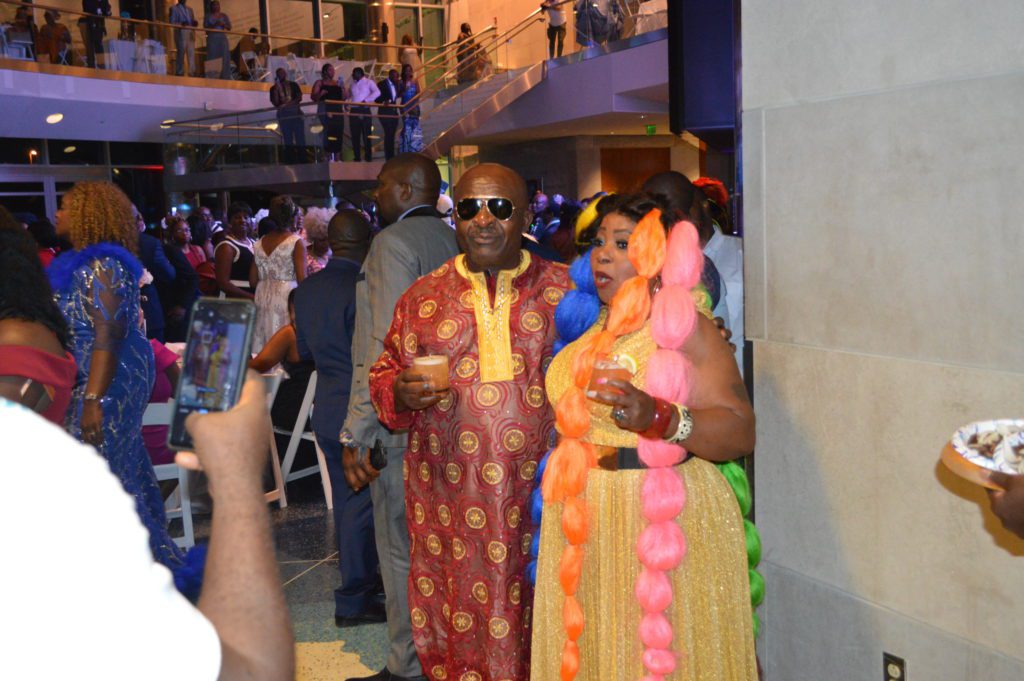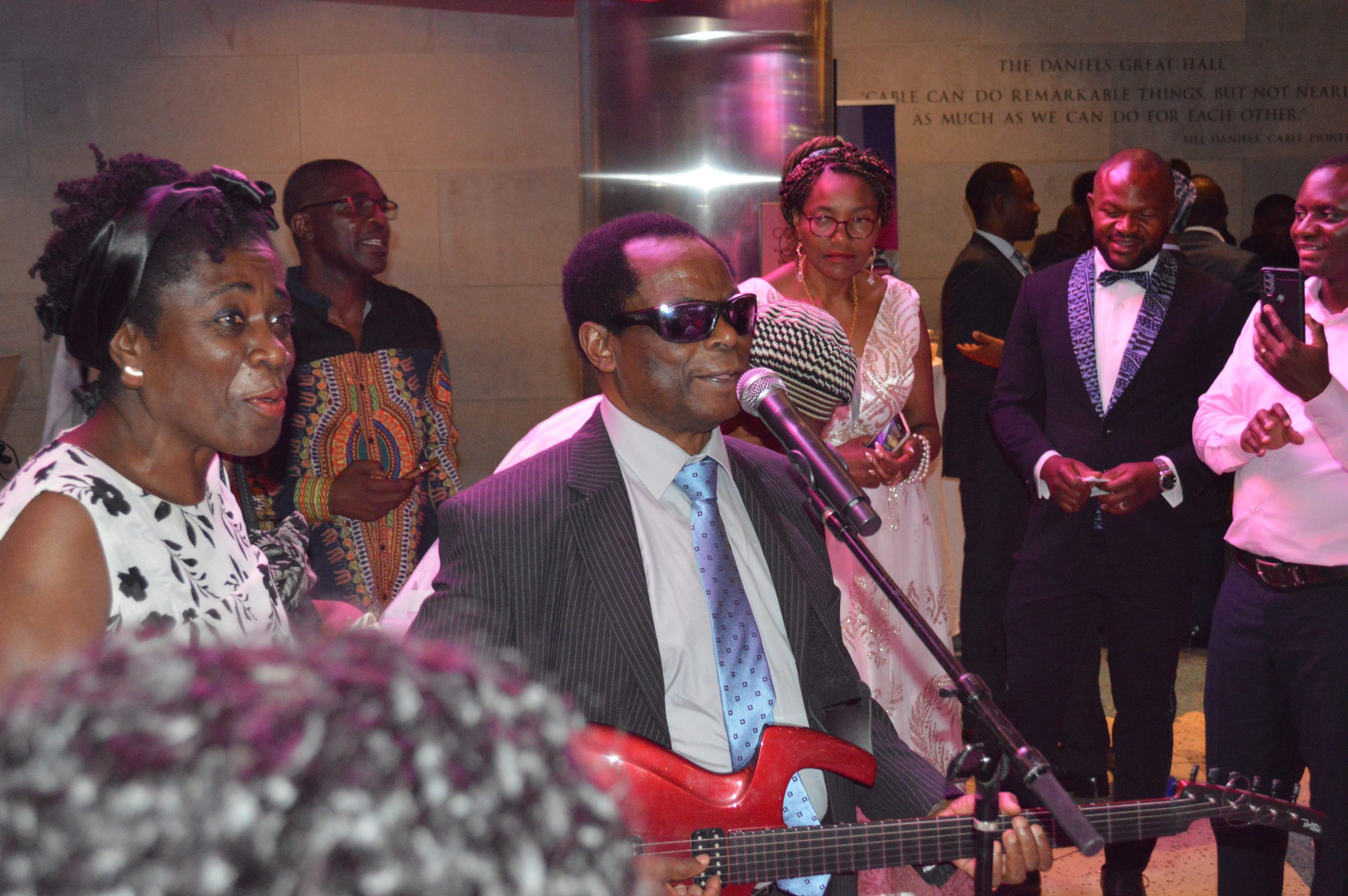 Africa Agenda
Africa Agenda A group of Bamilekes of North America gather inside the Denver Cable Center to celebrate their African ancestry and raise funds for projects in Cameroon. Saturday, September 3, 2022.
They may have left their African homeland in Cameroon’s Western Region and settled in parts of the United States and Canada, but the Bamelikes show us they have not forgotten where they came from.
The Bamilekes in Cameroon, a group of African Bantu people, represent one of the more than 250 ethnic groups that form the Cameroonian nation in sub-Saharan Africa.
Also called the grasslanders, the conglomeration of groups makeup the individual kingdoms to which the Bamilekes belong. Economically they are known for their entrepreneurship, business-savvy mentality, and ingenuity. What many of us may not know is the Bamilekes’ love of culture. The idea of remising, and remembering their cultural roots and traditions are at the core of who the Bamilekes say they are.
In Colorado, the Bamilekes have Binam Colorado, a nonprofit association that fosters an understanding of their culture and serves as a bridge to the larger community of Africans in the state.
The All Bamileke Convention kicked off on Friday, September 2 with a cultural night at Denver’s Wings Over the Rockies Air and Space Museum. This was followed by a networking symposium and a gala night on Saturday, September 3 at Denver’s Cable Center. The annual event seeks to unite the homogeneous groups of Bamilekes throughout North America.
To help them celebrate they invited Tala Andre-Marie, an inspirational Cameroonian musician, who traveled from Cameroon to Denver to sing in English, French, and the Bamileke language. Tala captured the Saturday evening audience by singing from an album that goes back to the days when the Cameroonian nation was founded. At 72, and blind, the musician has often been compared to America’s Stevie Wonder. He continues to travel and sing locally and internationally.
Understanding African Culture
“We are living in a time when we must do more than tolerate each other —We must form a global community that encourages mutual understanding, learning and common growth,” said Christian Tagne, a Cameroonian native and chair of the North America Convention team in a release published in the convention brochure.
“Understanding different people and their cultures is one of the best ways to learn from each other, as well as to learn more about ourselves; hence our destiny to not only create bridges with other generations, but with other cultures as well,” Tagne stated.
The three-day event from September 2 to 4 brought together more than 500 people, including students, business, and community leaders from the African continent, Europe, Canada, and the United States. Other dignitaries at the event included Colorado State Representative Naquetta Ricks from Aurora.

